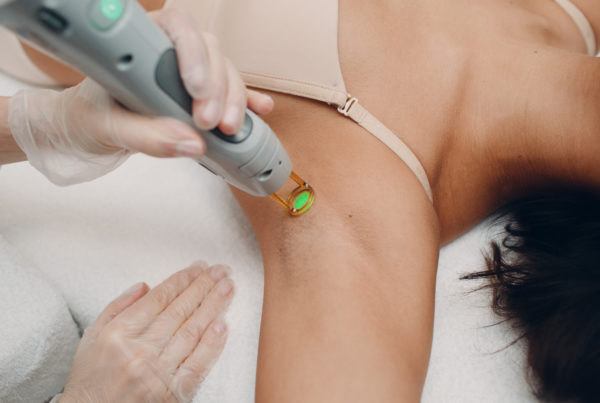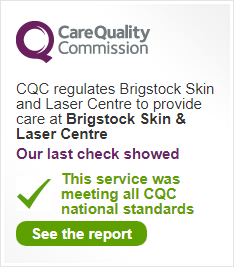What is problem hair – and does laser hair removal work?
We know that laser hair removal is extremely effective on many hair types. But what about problem hair? We’re not talking about an out of control barnet, but unwanted body or facial hair that you’d rather not have. Here we look at the different types of problem hair and discuss whether laser hair removal is the right treatment to have.
Ingrown – ouch!
Ingrown hairs are usually a side effect of some types of hair removal; most often they will appear in areas where you shave, although waxing, plucking and threading can also lead to ingrown hairs. When a hair has been removed using these methods, it can sometimes curl around and grow back into the skin. The hair might get captured in the hair follicle, which can cause an inflammation and even mild infection.
The good news is you can have laser hair removal even if you have active ingrown hairs. Because the laser hair removal goes directly into the hair follicle, it renders the follicle unable to produce hair and any affected area should begin to heal.
Rest assured, having laser hair removal treatment does not cause ingrown hairs. After successful hair removal the hair won’t grow back, so there is no risk of an ingrown hair in the area treated. You do need to shave prior to your laser treatment (find out why here) which may result in a few ingrown hairs, but this will lessen as you continue your series of treatments.
Feeling peachy?
Downy, vellus, baby hair – or peach fuzz as it’s often called, is the fine, ‘glistening’ hair that you can see on your face, especially when you turn to the light.
The areas you’re likely to notice it are on your chin, upper lip, underside of your chin, your cheeks and jawline. It’s often not noticeable to other people and you may well only see it when you zoom in on pictures or look closely in the mirror. However, once you know it’s there you may find it annoying and it might even give you confidence issues and anxiety.
This type of hair actually helps you to regulate your body temperature and the amount you have will vary depending on genetics, ethnicity as well as any hormonal imbalances and/or medical conditions. It can develop on most parts of your body – except for your lips, the soles of your feet and palms of your hands.
If you have very light downy hair the best advice we can give you is to leave well alone, particularly for younger skin. Because laser hair removal works on the pigment in hair, it won’t be very effective on downy hair which is hard to detect.
However, if your downy hair starts manifesting itself as full facial hair, then laser hair removal could be your answer.
Lighten up?
If you’ve got light, white, grey or red hairs that you want removed, we’re sorry but laser hair removal isn’t the right option for you. That’s because laser machines use the melanin inside the hair to absorb pulsed light, but with light, white, grey and red hairs there is either very little pigment or no pigment at all.
But there is hope! The best permanent treatment for white, grey and red hairs is electrolysis. It uses a tiny probe to penetrate the skin which heats up the hair follicle, emitting heat to individual hairs, damaging the follicle and preventing new growth. The colour of the hair doesn’t matter with this treatment.
Are you still worried about problem hair?
A good quality laser hair removal clinic with experienced, trained technicians will give you an honest and informed opinion about whether laser is the right option for your problem hair. Most clinics offer a free consultation so you can find out more and ask any questions you may have before you book a course of treatments.
A clinic that offers to guarantee your results will be confident about the results they expect to deliver and the expertise of their technicians.
If you still have concerns about your problem hair or would like some friendly advice on which type of hair removal might be the best method for you, the experienced team at Brigstock Skin and Laser Centre will be pleased to provide as much information as you need.
Simply give us a call on 020 8683 6730 or click here to book your free consultation.





